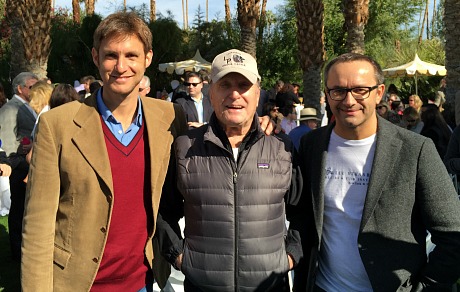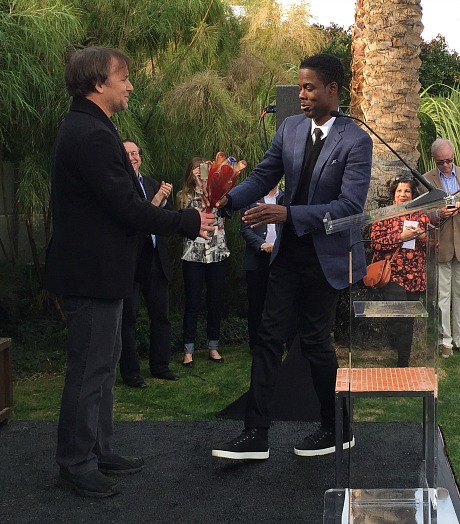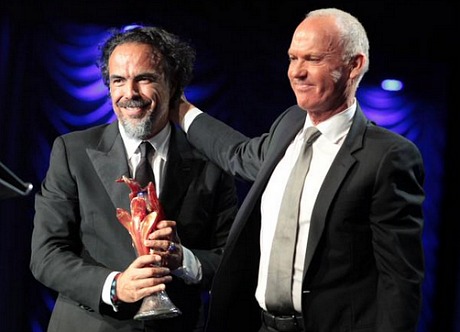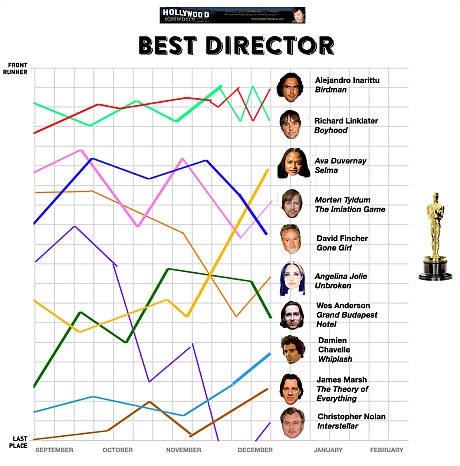From 11 am to 1 pm Hollywood Elsewhere attended Variety’s Creative Impact Awards and 10 Directors to Watch Brunch at the Parker Palm Springs. Totally relaxing…as pleasant and cheerful as this kind of thing gets. It was great shooting the breeze with The Judge costar Robert Duvall, Nightcrawler director-writer Dan Gilroy, Selma director Ava DuVernay, Leviathan director Andrey Zvyginstsev, Top Five director-star Chris Rock, Wild Tales director Damian Szifron, Sony Pictures Classics co-president Michael Barker, and Variety brunch host Steven Gaydos. And to discreetly gawk at Still Alice star (and almost-certain Best Actress Oscar winner) Julianne Moore, Foxcatcher costar Steve Carell and Boyhood director Richard Linklater.

(l. to r.) Wild Tales director-writer Damian Szifron, The Judge costar and likely Best Supporting Actor Oscar nominee Robert Duvall, Leviathan director Andrey Zvyagintsev at Variety‘s Palm Spring Film Festival brunch at the Parker Palm Springs.

(l.) Boyhood director Richard Linklater, (r.) Top Five director-star Chris Rock near end of ceremony.

Several attendees posing for a group shot. Don’t ask me to identity them all but obviously Chris Rock and Steve Carell are standing toward the left.





